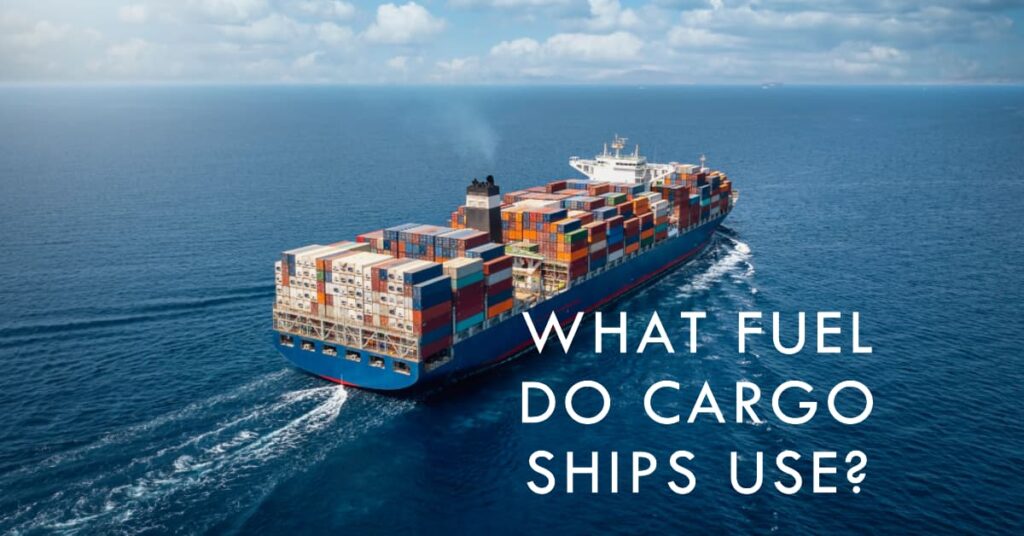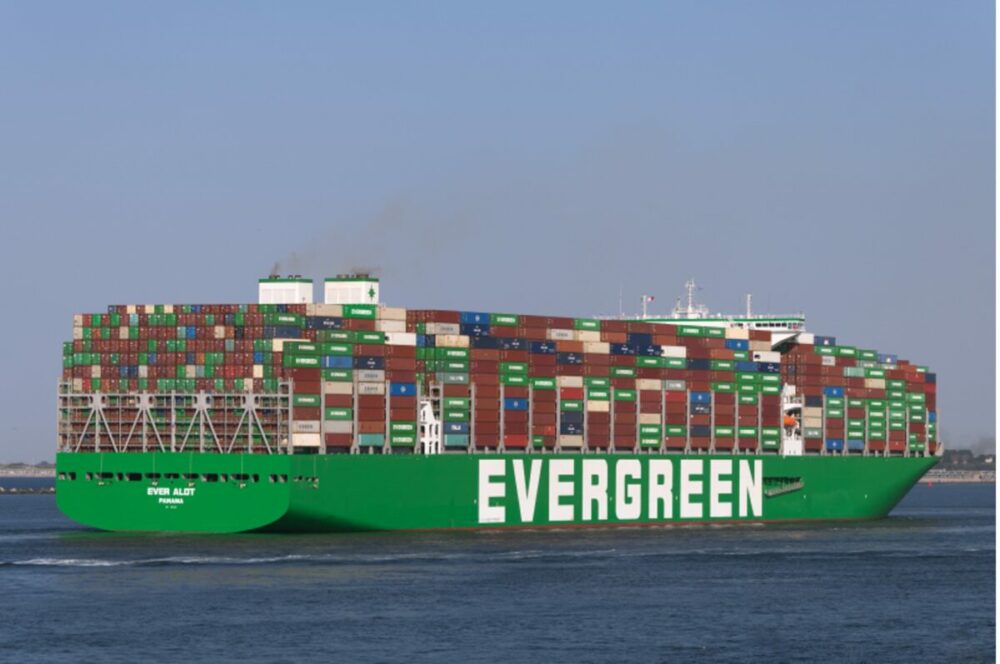Cargo Ships And Guns: Exploring The Reality Of Maritime Security
Do cargo ships have guns? This is a question that has intrigued many people, especially as global maritime security becomes increasingly important. Cargo ships are a vital part of international trade, transporting goods across oceans and seas. However, the threat of piracy and other security concerns has raised questions about the use of weapons on these vessels.
The world relies heavily on cargo ships for the transportation of goods, with millions of containers moving across the seas every day. With such a significant role in global commerce, it's natural to wonder about the security measures in place to protect these ships. The presence of weapons on board has become a topic of debate, with various perspectives on whether it enhances or compromises safety.
As we delve into this topic, we will explore the reality of maritime security, the regulations surrounding the use of weapons on cargo ships, and the measures taken to protect these vessels from potential threats. This article aims to provide a comprehensive understanding of the issue, supported by reliable data and expert insights.
Read also:Anja Ravello The Rising Star Whorsquos Redefining Fashion And Beauty Standards
Table of Contents
- Cargo Ships: A Brief Overview
- Security Threats Facing Cargo Ships
- Legal Regulations on Weapons on Ships
- The Role of Armed Security Teams
- Piracy Statistics and Trends
- Non-Lethal Security Measures
- Case Studies: Real-Life Scenarios
- Environmental Impact of Armed Cargo Ships
- The Future of Maritime Security
- Conclusion: What Lies Ahead
Cargo Ships: A Brief Overview
What Are Cargo Ships?
Cargo ships are large vessels designed to transport goods across oceans and seas. These ships are the backbone of global trade, responsible for moving billions of dollars worth of goods annually. They come in various sizes and types, including container ships, bulk carriers, and tankers. Each type is specialized for specific types of cargo, ensuring efficient and safe transportation.
The importance of cargo ships cannot be overstated. They connect continents, facilitate international trade, and play a crucial role in the global economy. However, the rise in maritime threats has prompted discussions about the security measures needed to protect these vessels.
Security Threats Facing Cargo Ships
Understanding the Risks
The primary security threats facing cargo ships include piracy, terrorism, and smuggling. Piracy, in particular, has been a significant concern in certain regions, such as the Gulf of Aden and the waters off Somalia. These threats not only endanger the crew but also disrupt global trade by causing delays and increasing costs.
- Piracy: Armed attacks by pirates seeking ransom or cargo.
- Terrorism: Potential threats from terrorist organizations targeting ships.
- Smuggling: Illegal activities involving contraband goods.
Legal Regulations on Weapons on Ships
The question of whether cargo ships can carry guns is governed by international and national laws. The International Maritime Organization (IMO) and various maritime conventions regulate the use of weapons on board ships. While some countries allow the use of weapons for self-defense, others impose strict restrictions.
For instance, the United States allows the deployment of armed security teams on U.S.-flagged vessels, provided they comply with specific regulations. In contrast, many European countries prohibit the carriage of weapons on board, preferring alternative security measures.
The Role of Armed Security Teams
Enhancing Ship Security
Armed security teams have become a common practice in high-risk areas. These teams are typically composed of trained professionals who provide an additional layer of protection for cargo ships. Their presence deters potential attackers and ensures the safety of the crew and cargo.
Read also:How To Understand Crown Family Traditions A Deep Dive Into The Monarchrsquos World
However, the deployment of armed security teams is not without controversy. Critics argue that it may escalate conflicts and lead to unintended consequences. Despite these concerns, many shipping companies view armed security as a necessary measure to combat piracy and other threats.
Piracy Statistics and Trends
Data from the International Maritime Bureau (IMB) highlights the trends in piracy over the years. While the number of pirate attacks has decreased significantly since the peak in the early 2010s, certain regions remain vulnerable. The IMB's annual reports provide valuable insights into the nature and scope of piracy, helping stakeholders develop effective countermeasures.
According to the latest statistics:
- 2022 saw a total of 132 reported incidents of piracy and armed robbery against ships.
- West Africa remains the most affected region, accounting for the majority of incidents.
- Improved security measures have contributed to the decline in attacks.
Non-Lethal Security Measures
Alternatives to Weapons
In addition to armed security, several non-lethal measures are employed to enhance ship security. These include:
- Barbed wire and physical barriers to prevent boarding.
- High-pressure water cannons to deter attackers.
- Improved surveillance systems and communication equipment.
These measures are often used in conjunction with armed security to create a comprehensive security strategy. By combining physical defenses with technological advancements, shipping companies can better protect their vessels and crew.
Case Studies: Real-Life Scenarios
Learning from Past Incidents
Several high-profile cases illustrate the importance of maritime security. For example, the hijacking of the MV Maersk Alabama in 2009 brought global attention to the issue of piracy. The incident highlighted the need for robust security measures and effective response strategies.
Another notable case involves the use of armed security teams to successfully repel an attack on a cargo ship in the Gulf of Aden. These real-life scenarios underscore the complexities of maritime security and the importance of adaptability in addressing evolving threats.
Environmental Impact of Armed Cargo Ships
Weighing the Consequences
The deployment of weapons on cargo ships raises environmental concerns. The potential for accidents or mishandling of firearms could lead to pollution and harm marine life. Additionally, the use of armed security teams may increase the carbon footprint of shipping operations due to the need for additional resources and equipment.
Shipping companies must carefully consider these factors when implementing security measures. Balancing security needs with environmental responsibility is essential for sustainable maritime operations.
The Future of Maritime Security
Innovative Solutions for Enhanced Protection
The future of maritime security lies in innovation and collaboration. Advances in technology, such as drones and artificial intelligence, offer new possibilities for monitoring and protecting cargo ships. Additionally, international cooperation and information sharing are crucial for addressing global security challenges.
As the industry continues to evolve, stakeholders must remain vigilant and proactive in their approach to maritime security. By embracing new technologies and strategies, the shipping industry can ensure the safe and efficient transportation of goods worldwide.
Conclusion: What Lies Ahead
In conclusion, the question of whether cargo ships have guns is a complex one, influenced by legal regulations, security threats, and environmental considerations. While armed security teams have become a common practice in high-risk areas, alternative measures such as physical barriers and surveillance systems also play a vital role in protecting these vessels.
We invite you to share your thoughts and experiences in the comments below. Your feedback helps us improve and expand our coverage of important topics like maritime security. Additionally, explore our other articles for more insights into global trade and shipping.


